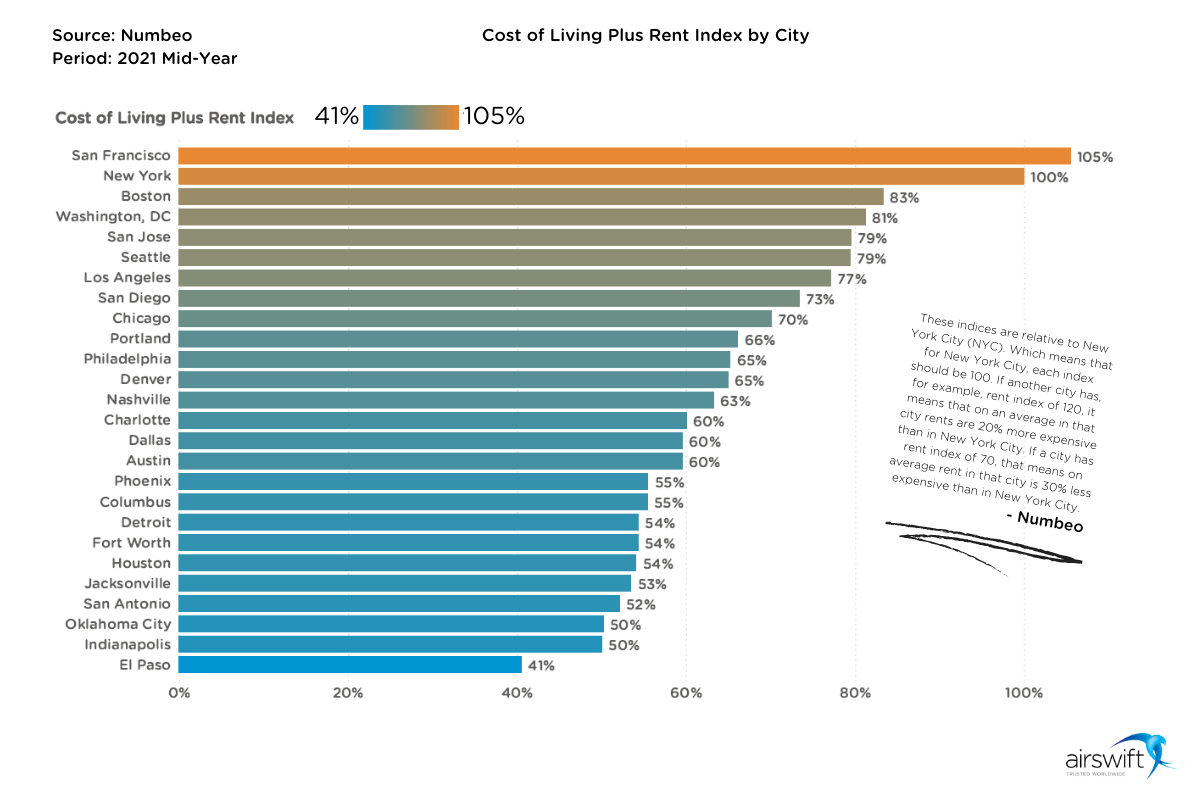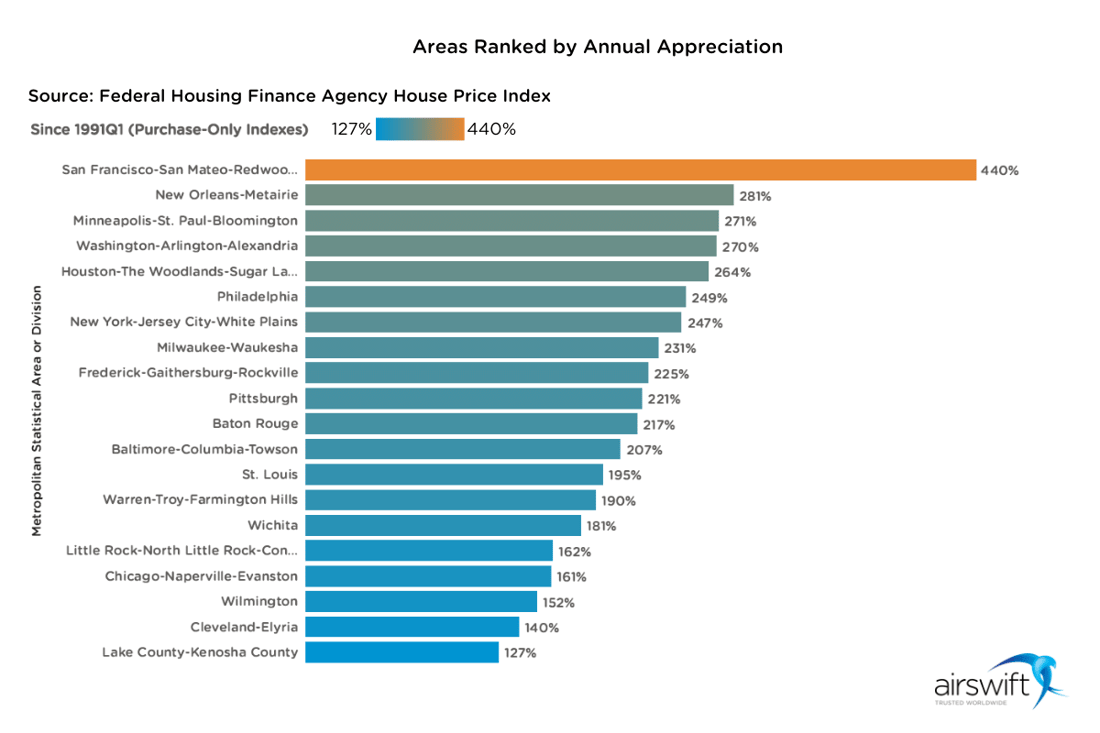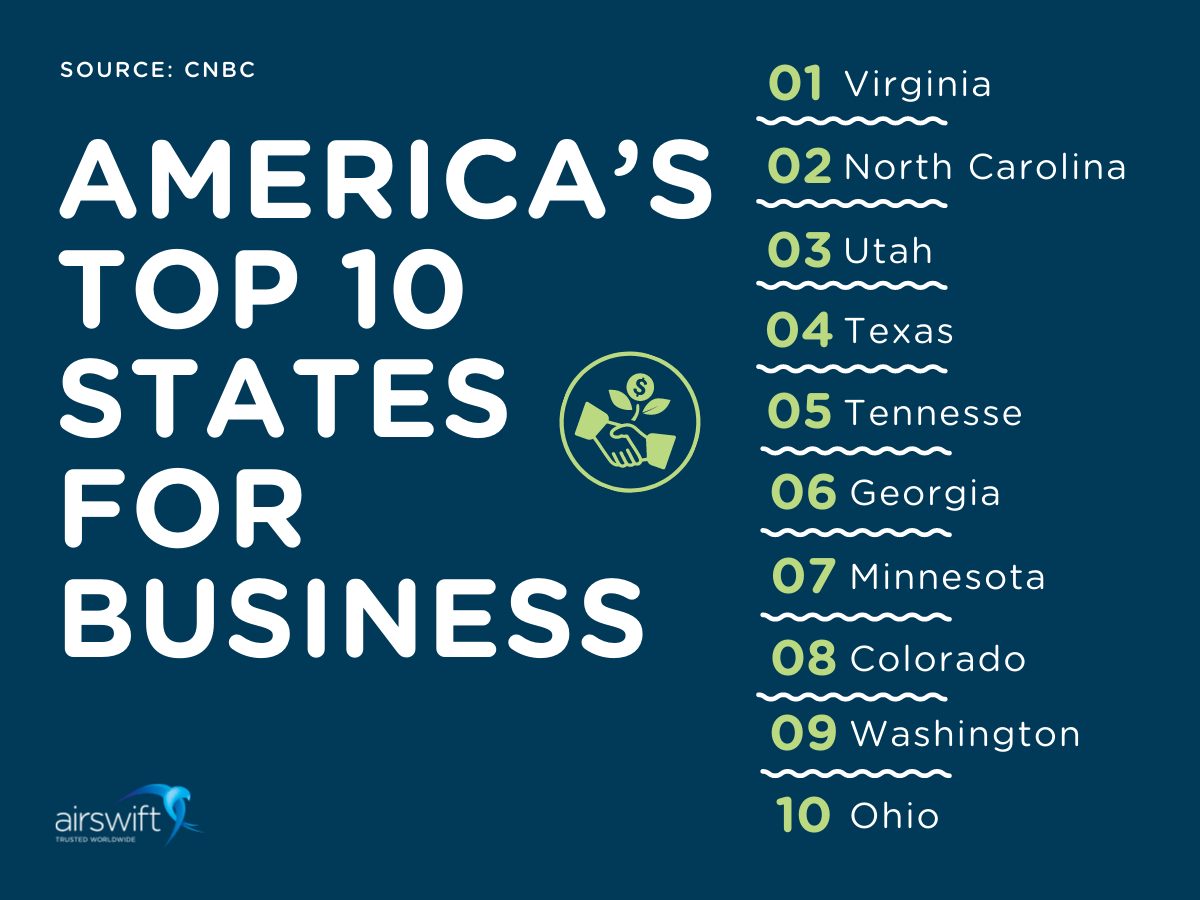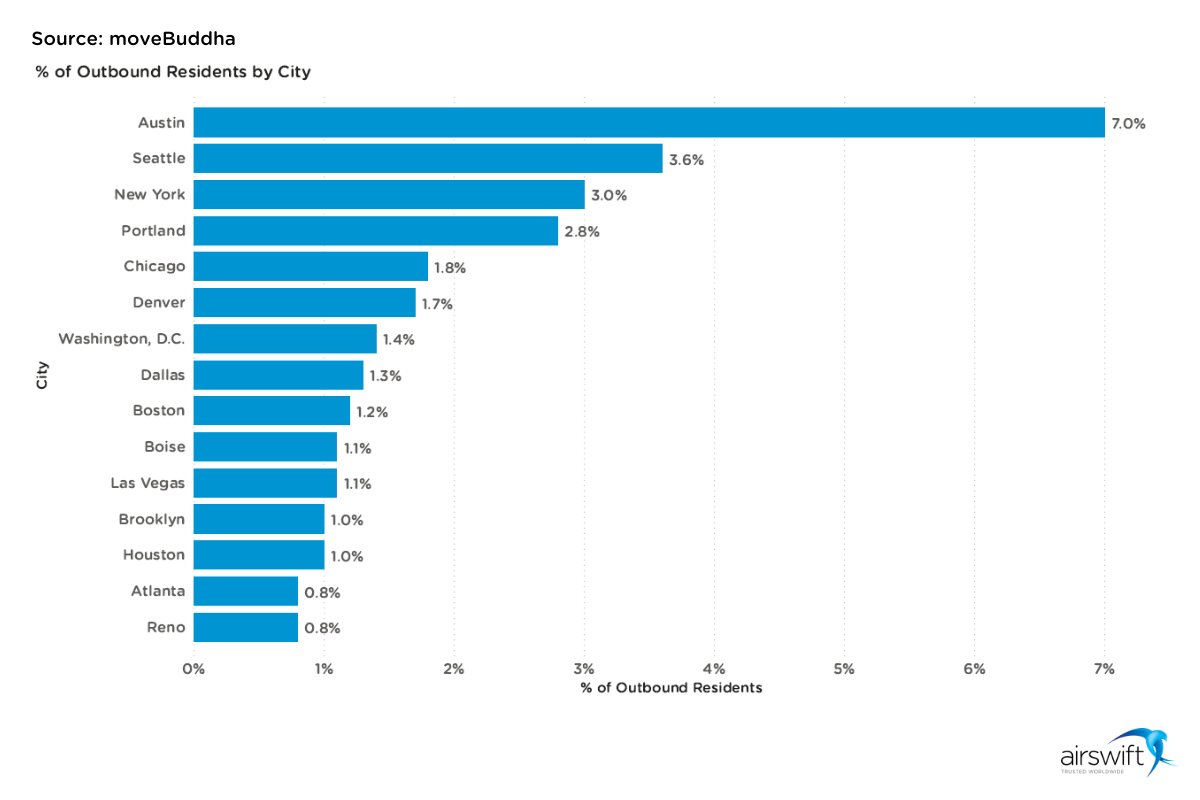
By
Raphael Santos
January 19, 2022
Updated
April 11, 2023
Source: Frame Stock Footage/Shutterstock
The tailwinds and headwinds of the Bay Area. Will the next Silicon Valley develop elsewhere?
Common sense tells us that the 'Birthplace of Silicon Valley' is the former garage of Bill Hewlett and David Packard.
The founders of Hewlett-Packard (HP) are highlighted as planting the seed of what developed into the most important technology hub in the world. But history is not only driven by individual efforts, and there are many factors that led to the development of Silicon Valley as a hub for talent and innovation.
The Cold War with its space race influenced a series of investments in the region leading to the emergence of key facilities such as NASA's Ames Research Center. It was only a matter of time before the path of technological innovation and genius minds led to the emergence of Hewlett-Packard mates like Apple and Oracle, and later, Google and Facebook.
A culture of innovation and entrepreneurship attracted talent and funding to Silicon Valley…
In the mid-1980s, we even saw a technological race inside the US between Massachusetts and California. Through that rivalry, it became more evident the reasons why the West Coast region rose as a tech leader and outpaced its competitor:
- The collaborative and risk-taking culture among workers.
- Stanford's support in startup acceleration with even professors helping with product development; and its role in educating the future tech game-changers.
- An organization in companies that prioritized agility, making work relationships more horizontal.
- Access to venture capital funding instead of relying on government contracts.
- The attraction of talent through efforts like the H1-B visas.
Those key points have made Silicon Valley what it is and continue to empower the region's tech industry.
…but competition, new working patterns and a high cost of living make California less attractive to workers and employers
However, there are 5 headwinds weakening the positioning of Silicon Valley as a tech centre and therefore finding a destination in other emerging technology hubs. Check out these 5 factors!
Cost of living plus rent
Silicon Valley's lifestyle is becoming too expensive
Silicon Valley still plays a key role in the development of disruptive technologies. However, the region has been criticized for its cost of living.
To check that, we went to the data crowdsourcing website, Numbeo, to extract the data referring to the Cost of Living Plus Rent Index. The data gathered the costs for a wide range of cities, taking New York City as its basis for the index (100%) and then determining which cities have higher or lower indexes.
Cost of living by City
Now, looking at the cities with the largest populations in the US, we see San Francisco leading as the most expensive in the entire country. San Jose is the 5th, and San Diego the 8th.

Silicon Valley still obviously has a robust economic ecosystem capable of attracting startups and tech talent, but the signs are here.
Tech companies such as Oracle and Tesla have already moved their headquarters to Austin, Texas; Palantir Technologies went to Denver, Colorado. And many others are following the same path.
A big driver of costs is the lack of housing for early-mid career professionals.
Availability of housing
Bay Area Annual Appreciation since 1991
Last year, according to the Federal Housing Finance Agency, the Bay Area was among the 20 lowest annual house price valuations (purchase-only FHFA HPI from 2020Q3 to 2021Q3).
But when we see how the region has stood since the beginning of the statistical assessment (since 1991, seasonally adjusted), the situation starts to change with the accumulated increase while comparing the Bay Area and regions with low annual growth.

That is not a surprise. We are talking about an area that has experienced an incredible appreciation in recent decades. Not only has the region attracted a lot of high paying workers and lucrative businesses, but it also has faced "Not In My Back Yard" (NIMBY) protectionism from existing homeowners.
Many homeowners blame tech giants for the region's housing crunch and take a stand against the construction of new buildings. That increased the price of their home and restricted access for younger workers.
Even with low changes from recent periods, the Bay Area still has one of the most expensive land prices.
House prices are rising in new primed locations
- Austin-Round Rock-Georgetown, TX - house prices rose 33.8% over the past year.
- Phoenix-Mesa-Chandler, AZ - house prices rose 28.9% over the past year.
- Denver-Aurora-Lakewood, CO - house prices rose 19.1% over the past year.
The appreciation of the above regions is a strong indication that the economic environment is changing. And let's be honest, when you need to decide between the same standard of life in Austin or San Francisco, and you realize that can have almost $3,000 more extra money per month living in the former (Numbeo), the decision then seems not to be so difficult.
And that's the reality of today. It doesn't matter where you are; you can choose a better quality of life thanks to remote working.
Remote Work
 Source: Frame Stock Footage/Shutterstock
Source: Frame Stock Footage/Shutterstock
The "next Silicon Valley" will have no zip code?
The coronavirus pandemic ended up contributing to the increase in the unemployment rate in some regions. And has accelerated many changes in the work environment, and today remote work is already a fact. We are even now talking about web 3.0 and how the metaverse could impact the future of work.
The possibilities achieved so far and the potential for the future show that remote working will remain strong as a viable option for many employees.
Not to mention a very seductive argument in all this: the possibility of working with more diverse teams and globally. Some journalists are even speculating that ‘the next Silicon Valley’ will have no zip code. That then brings us to another issue just as important: outsourcing.
Will companies still pay the same salaries in other locations?
With the rise in remote work, there are questions over whether firms should adopt varying geographic pay policies.
Here's something that within the work-from-home policy is sure to bring sympathy to some companies, while others not so much.
Google has already made it clear that plans to cut the pays of employees who move from the Bay Area or New York city to less expensive regions in the US. Obviously, this can lead to unnecessary conflict with the employees, decreasing their engagement and even losing talent to the market. Google is not alone in doing this, which has left Silicon Valley with a bad image among many skilled workers and thus weakening its attraction to talent.
That causes more damage to the companies' employer brand when others maintain pay parity. As is the case with Reddit, which established a payroll without geographic rate across the US.
Outsourcing has expanded talent pools
The collaborative way of working has gained a new status with the latest outsourcing practices. That's because it became easier to expand or even move headquarters to another city with the help of outsourced services.

Source: Frame Stock Footage/Shutterstock
Many companies can search for the best talent in the entire US or worldwide and still manage their payroll and HR functions from different locations. With a greater variety of tech hubs emerging, it is possible to compete for talent without spending much thanks to outsourcing.
That certainly breaks Silicon Valley's centralization and monopoly of talent and technology. Even access to international talent can be jolted by political decisions. We saw this with the Trump administration policy to reduce access to H-1B visas.
That action certainly affected the plans of companies in Silicon Valley looking to find and retain talent from abroad. Innovations in outsourcing practice can mitigate this risk as firms can hire talent in distant markets remotely via an Employer of Record without the need to immigrate an employee.
You can be inside a local emerging tech hub and still compete in outside markets. In outsourcing, startups find cost-effective and equitable access to talent.
Competition from other tech hubs
CNBC published a study this year ranking American states on their business environment. California has been losing competitiveness by occupying the 33rd position.

Looking at this ranking, we began to confirm the trend of greater business opportunities outside California. CNBC took many attributes into account: cost of living, access to capital, and even the availability of a qualified workforce.
And talking about workforce availability, we can see Texas and Colorado emerging in the first and second positions. These two states have an abundance of highly skilled engineers and computer scientists and strong educational institutions producing new graduates.
Investors, entrepreneurs and tech professionals will definitely be looking over those regions in the following years.
What's next for the "Silicon" brand?
The end of an era?
The availability and ability to attract talent is essential for a region to remain innovative.
The latest report from moveBuddha showed some of the pandemic's consequences for the Bay Area. The site published the main destination cities for residents leaving California. Austin, the current home of popular big techs like Tesla, is the number one terminus.

Another source, like the US Postal Service, can point in a different direction and show a more significant increase in resident relocations to suburbs rather than out-of-state destinations. That was published by the San Francisco Chronicle, based on the data extracted from the US Postal Service change-of-address. But even so, in that top 20 destinations, we find Austin and Denver in the records, with the two being the only out-of-state destinations.
We can conclude with those analyses that there is a meaningful move of Bay Area citizens searching for a better quality of life. And that journey is taking them to more cost-effective places, which can be the suburbs or other states.
Silicon Forest, Mountain, Hills, Sandbar...
Is it time for a new place for the "Silicon" brand?
There are many regions in the United States pursuing the title. Austin is becoming known as the Silicon Hills; take off the "s" and then you have "Silicon Hill" in Washington, DC; Denver, Fort Collins, Colorado Springs and Boulder are being called "Silicon Mountain.
The same is happening in other areas like Arizona (Silicon Desert), Great Portland (Silicon Forest), Utah (Silicon Slopes), Georgia (Silicon Peach), Massachusetts (Silicon Sandbar) and much more.
The "Silicon" stamp has become the benchmark of a collaborative and talented technology hub. But now, the Bay Area has been transformed into an environment prone to big techs, but not for small ones. The data we've gathered points to a very high cost of living in the region and a more predatory economic environment — it has turned quite difficult for emerging companies to compete against established ones for capital and talent.
You can know more about this imminent scenario by accessing our article covering the strategic "Silicon" areas you should be looking over.
